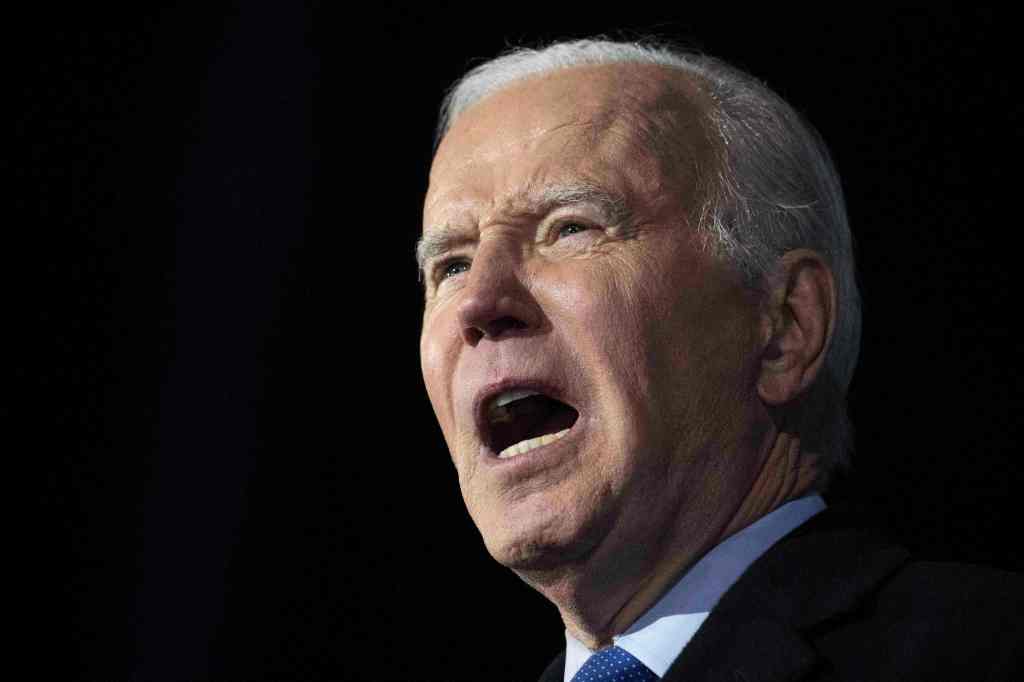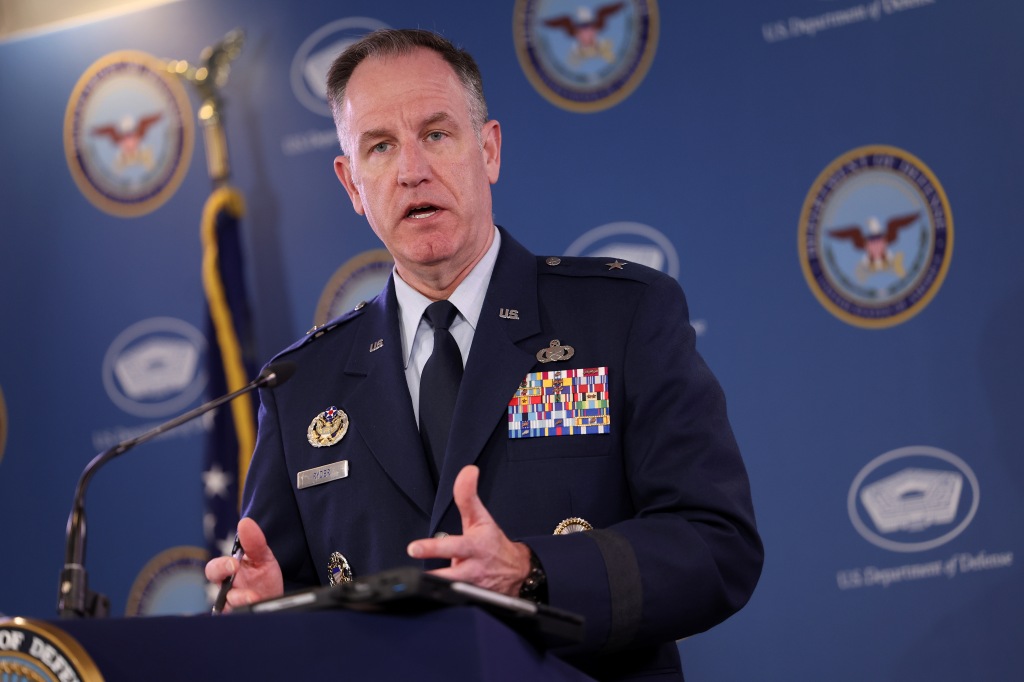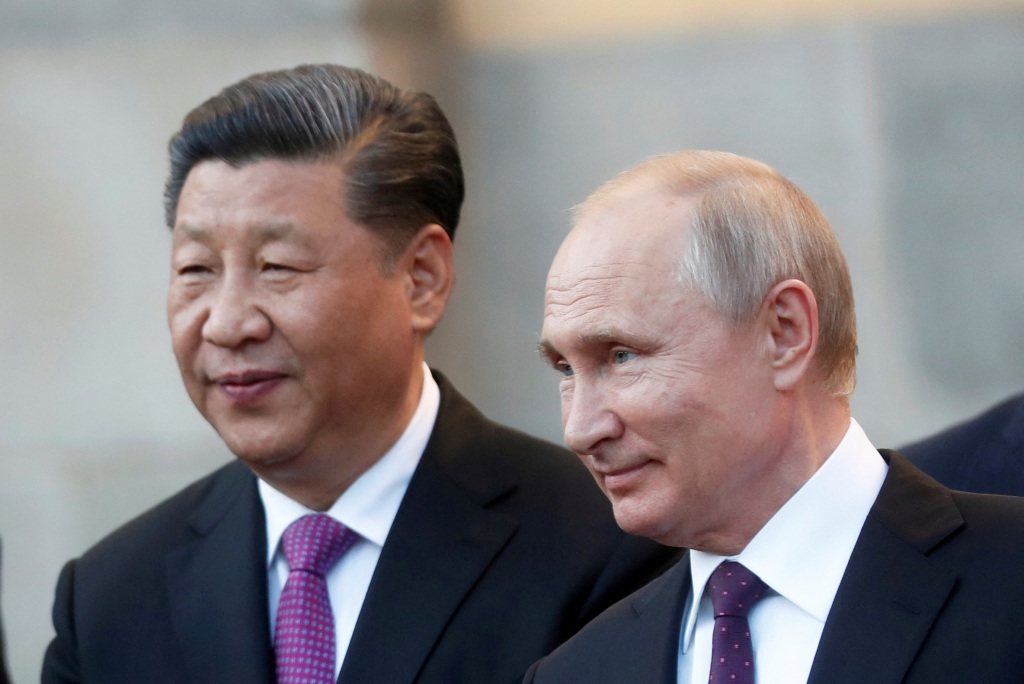Blasé Biden, Pentagon leak response raises red flags: expert
WASHINGTON – Though President Biden said Thursday he was “not concerned” about the intelligence leaked in a recent online dump of classified Pentagon documents, law enforcement and cybersecurity experts say such a breach should force a security policy reckoning.
“I’m not concerned about the leak because — I’m concerned that it happened – but there’s nothing contemporaneous that I’m aware of that is of great consequence right now,” Biden told reporters in Ireland on Thursday, hours before 21-year-old Air National Guardsman Jack Teixeira was arrested and accused of sharing sensitive information with his gamer friends since late last year.
Experts say the document dump – which illegally exposed future war plans and critical US intelligence, potentially endangering thousands of Ukrainian lives – is the most significant and public unauthorized Pentagon disclosure since 2010 when nearly 400,000 Army field reports dated from 2004 to 2009 were posted to WikiLeaks in a scandal dubbed the “Iraq War Logs.”
“I do not understand how the president could be ‘not concerned’ about the specific leak in intelligence that ties specifically to the Ukraine war,” cybersecurity expert Scott Schober told The Post. “… So far it seems that the sheer volume of classified data leaked was much smaller than [the WikiLeaks case], but the fact that some of the data is tied to military, satellite info and human intelligence is certainly a national security concern that should not be taken lightly.”
Investigators say Teixeira uploaded dozens of pages of secret information to Discord, an online social network where he led a channel of around two dozen hardcore fans of a YouTube creator known as Oxide.
“The online group used the title ‘Thug Shaker Central’ which was comprised of more than 20 young men that were into video games, guns and military gear,” Schober said. “Much of the shared information within the group appears racist in nature and used for bragging rights.”
Biden’s public nonchalance could be a strategic response to downplay the international embarrassment of the world’s most advanced military allegedly being victimized by a 21-year-old bragging to friends online, but Schober said the disclosure of highly sensitive war documents is very much concerning.
“Just the fact that US classified information was leaked could potentially lessen the flow of future classified intelligence sharing for fear of being leaked,” he said. “Downplaying the seriousness might be a smart political move in the short term but it sends the wrong message to US allies that will reverberate far beyond this current administration.”
Following The Post’s latest coverage on the US intelligence leaks scandal
Teixeira, who held the third-lowest rank in the Air Force, had been in the Air National Guard for fewer than four years — but he had held a Top Secret security clearance since 2021 for his work as a cyber transport systems journeymen, the service’s “frontline technicians” who keep up the infrastructure of the military’s most advanced cyber networks used to securely send and receive highly sensitive information.

“The level of access that a 21-year-old airman had is surprising to me,” Schober said. “He had top security clearance including access to Secure Compartmented Information Facilities … [which] are secured rooms for US military, intelligence and national security personnel to process sensitive, classified information without the fear of it being copied, intercepted or surveilled.”
Pentagon spokesman Air Force Brig. Gen. Pat Ryder tried to explain the situation Thursday, saying some service members require security clearances as soon as they join the military.
Teixeira joined the Air National Guard in September 2019, and received his security clearance just two years later.

“We entrust our members with a lot of responsibility at a very early age,” Ryder told reporters. “Think about a young combat platoon sergeant, and the responsibility and trust that we put into those individuals to lead troops into combat — that’s just one example across the board.”
But while Teixeira’s work required him to have access to secure communications networks to work on their infrastructure – he did not have the “need-to-know” required to open and read the documents in his low-ranking position.
“Teixeira … was an IT/tech expert who was provided a high level of security clearance,” Schober said. “However, he was not authorized to receive the classified national defense information he obtained.”
Another concern Teixeira allegedly began publishing classified information to Discord in late December, months before the Pentagon detected the major security breach – meaning the Pentagon should examine whether their current threat detection practices are doing the job, Schober said.
“Authorities should have detected this threat and acted much sooner,” he said, noting that federal agencies have detection tools and policies meant to identify and report such breaches.
Ryder on Thursday downplayed the significance of the Pentagon’s inability to swiftly identify the leak, noting that it’s “important to remember that DOD’s intelligence activities are primarily focused internationally” – not on insider threats.
“To the extent that the department collects any information related to US persons, for example, or gaming chatrooms, it would have to be conducted in accordance with the law and policy and in a manner that protects privacy and civil liberties,” Ryder said.
But defense and security experts say Americans deserve an explanation for how such a consequential leak could have occurred under the Pentagon’s nose.
“There are anomaly detection methods for authorized and unauthorized user access and those alerts should have went off,” said Schober. “Perhaps they did and were not noticed? This will need to be carefully investigated.”

The DoD is probing how the leak occurred – and how it went unnoticed – but officials have so far said little on what they believe happened. Images of leaked documents indicate that Teixeira printed out and took photos of the papers to share them with the world – but anywhere the airman would have been allowed to access the top secret documents should have been a secure room, Schober said.
“There is a strict ‘no wireless’ policy for SCIFs … [but] he allegedly obtained classified military documents – which is a crime in itself – and then posted them on the internet for anyone to see,” added Schober, whose cybersecurity technology company builds wireless-threat detection tools to ensure no communications can take place inside secure rooms.
While Ryder said a Pentagon team is reviewing the incident to see whether anything should change to prevent future leaks, he also painted the DoD as the victim in the case.
“[We are] reviewing distribution lists, looking at who has a need to know, making sure those things are updated, doing due diligence in the wake of these unauthorized disclosures,” Ryder said. “Though I want to emphasize that this was a deliberate criminal act to violate those guidelines and rules in the same way that if you … [left your house and] followed your procedures and locked your door but somebody went in your house and took something and put it out on the street.”
Read the full article Here


